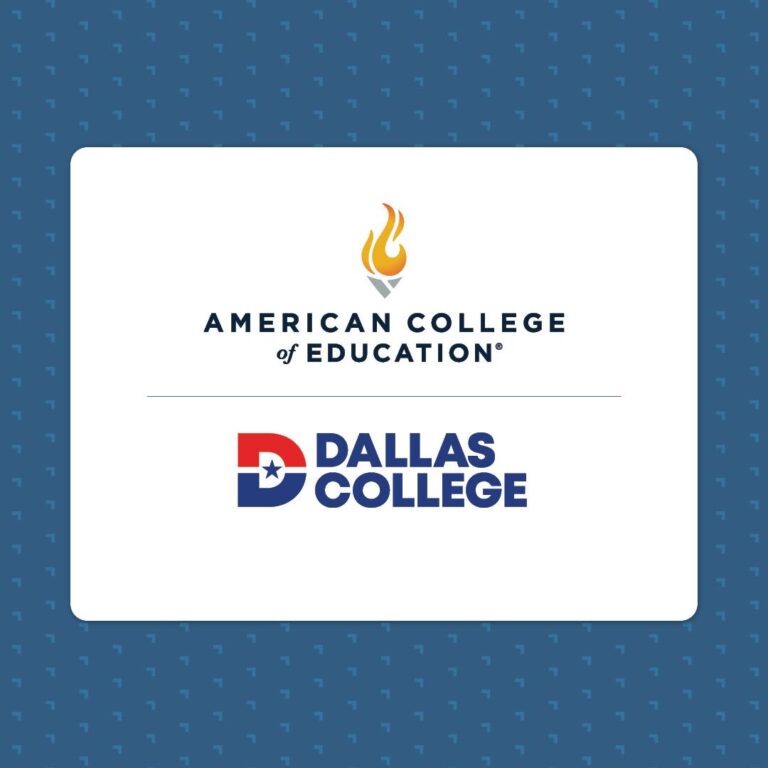Strengthening Nursing Education Through Innovative Partnerships
In response to the escalating need for proficient nursing professionals, American College of Education and Dallas College have expanded their collaborative efforts by launching an enhanced Nurse Education Pathway. This initiative is designed to simplify the academic progression for nursing students, offering a cohesive curriculum that merges theoretical knowledge with practical experience. By pooling their resources and expertise, these institutions aim to better prepare students for the demands of todayŌĆÖs healthcare environments.
Highlights of this partnership include:
- Seamless credit transfer agreements ensuring smooth progression between programs
- Collaborative clinical placements that expose students to a variety of healthcare settings
- Adaptable scheduling options tailored for working professionals and non-traditional learners
- Specialized academic advising focused on nursing career pathways
| Program Segment | Description |
|---|---|
| Associate Degree | Dallas College ŌĆō Core Nursing Foundations |
| BachelorŌĆÖs Degree Completion | American College of Education ŌĆō Advanced Nursing Studies |
| Clinical Training | Partner Hospitals and Clinics Across the State |
Addressing Healthcare Staffing Challenges with Expanded Nursing Pathways
As healthcare demands intensify nationwide, this expanded Nurse Education Pathway represents a proactive solution to regional nursing shortages. The program is structured to guide students from foundational coursework through to advanced clinical practice, integrating innovative teaching methods with extensive hands-on experience. Emphasizing accessibility, the pathway offers tailored support to non-traditional students and those from underserved communities, helping to dismantle barriers to nursing education.
Core components of the expanded program include:
- Flexible class schedules: including evening and weekend sessions to accommodate diverse lifestyles.
- Clinical rotations: partnerships with a broad network of healthcare providers offering varied patient care experiences.
- Financial aid and scholarships: designed to promote inclusivity and increase enrollment among underrepresented groups.
- Career services: dedicated advisors assist students in transitioning smoothly from education to employment.
Collectively, these elements aim to mitigate critical nursing shortages, thereby improving healthcare delivery and patient outcomes across the region.
Flexible Education Model Supports Working Professionals and Career Switchers
Recognizing the challenges faced by students balancing work and study, the partnership offers a flexible learning framework that combines asynchronous online coursework with in-person clinical experiences. This approach allows learners to advance their nursing education without pausing their current employment, making it especially suitable for individuals transitioning into nursing from other careers.
Key aspects of the flexible learning design include:
- 24/7 access to online course materials for self-paced study
- Hybrid learning formats blending virtual instruction with hands-on clinical practice
- Personalized academic advising tailored to individual career objectives
- Accelerated tracks for students with prior healthcare experience
| Feature | Advantage |
|---|---|
| Online Coursework | Flexible access anytime, anywhere |
| Evening Classes | Accommodates busy schedules |
| Dedicated Advising | Customized support for career advancement |
| Hybrid Clinicals | Hands-on experience with scheduling flexibility |
Experts Call for Investment in Integrated Nursing Education to Meet Growing Demand
Healthcare leaders and education specialists advocate for increased funding and support for collaborative nursing programs that blend academic excellence with practical training. These integrated models are essential to prepare a nursing workforce capable of addressing complex patient needs and adapting to evolving healthcare landscapes. The partnership between American College of Education and Dallas College serves as a model, offering a structured pathway that combines rigorous coursework with extensive clinical exposure, ensuring graduates are workforce-ready.
Key success factors of such collaborative programs include:
- Curriculum coordination: Harmonized course sequences that facilitate smooth academic progression.
- Expanded clinical partnerships: Access to diverse healthcare settings for comprehensive training.
- Flexible learning options: Online and hybrid formats that accommodate varied student needs.
- Clear career pathways: Articulation agreements that support advancement from associate to bachelorŌĆÖs degrees and beyond.
| Program Element | Advantages |
|---|---|
| Collaborative Curriculum | Emphasizes critical thinking and patient-centered care |
| Clinical Partnerships | Provides exposure to diverse patient populations |
| Flexible Scheduling | Supports working students and those changing careers |
Looking Ahead: The Future of Nursing Education
The expanded partnership between American College of Education and Dallas College represents a pivotal step toward meeting both regional and national nursing workforce demands. By offering accessible, high-quality educational pathways, this collaboration supports the development of a skilled nursing workforce essential for robust healthcare systems. As the need for qualified nurses continues to riseŌĆöprojected by the U.S. Bureau of Labor Statistics to grow 9% from 2022 to 2032ŌĆöinitiatives like this set a valuable precedent for future educational collaborations in nursing.







